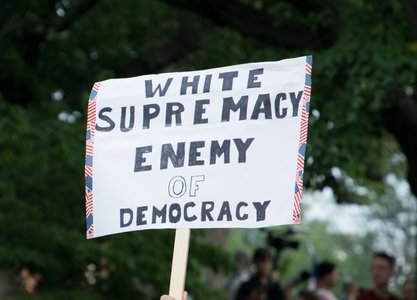President Donald Trump’s administration made headlines again with the exit of chief strategist Steve Bannon Friday. The move came days after a protest in Charlottesville, Virginia turned into a violent melee. The panelists discussed Bannon’s firing, along with what led to the violence in Virginia, how elected officials responded, and where America goes next.
Full Episode: Steve Bannon’s out at the White House, aftermath of white nationalist protests in Charlottesville
Aug. 18, 2017 AT 9:38 p.m. EDT
TRANSCRIPT
Notice: Transcripts are machine and human generated and lightly edited for accuracy. They may contain errors.
ROBERT COSTA: He’s out. Under pressure, the president’s chief strategist, Steve Bannon, exits the White House. I’m Robert Costa. We discuss Bannon and the political turbulence sparked by the tragedy in Virginia, tonight on Washington Week .
PRESIDENT DONALD TRUMP: (From video.) You had a group on one side that was bad, and you had a group on the other side that was also very violent. And nobody wants to say that, but I’ll say it right now.
MR. COSTA: A defining moment.
PROTESTERS: (From video.) Nazis go home! Nazis go home!
PRESIDENT TRUMP: (From video.) I think there’s blame on both sides. You had some very bad people in that group, but you also had people that were very fine people on both sides. What about the alt-left that came charging at the, as you say, the alt-right? Do they have any semblance of guilt?
MR. COSTA: Another national inflection point. A new test of leadership: Did President Trump meet the moment? And where does America go from here? Plus, inside the White House, chief strategist Steve Bannon is pushed out.
We cover it all with Geoff Bennett of NPR, Shawna Thomas of VICE News, Michael Scherer of TIME Magazine, and Molly Ball of The Atlantic .
ANNOUNCER: Celebrating 50 years, this is Washington Week . Once again, live from Washington, moderator Robert Costa.
MR. COSTA: Good evening. After weeks and months of speculation, Steve Bannon, he has been relieved as his duties as the president’s chief strategist. Bannon, the former head of Breitbart News, championed Mr. Trump’s populist campaign message to help him get elected last year. But his worldview and all those clashes with other Trump administration officials, including son-in-law Jared Kushner, it left him with few allies inside the West Wing. The White House today released this statement: “White House Chief of Staff John Kelly and Steve Bannon have mutually agreed today would be Steve’s last day. We are grateful for his service, and we wish him the best.”
Michael, coming to you, General Kelly made this decision, the 45-year Marine. You have to ask, is he cleaning house?
MICHAEL SCHERER: He is cleaning house, but I don’t think Kelly is the reason Bannon’s leaving. I think this has been coming for months now. The issue which has been building from early in the administration, when Bannon – remember, when President Trump gets there, has enormous power, was basically writing the talking points, pushing through the executive orders, had put himself on the National Security Council. It became a problem, though, because Bannon at his core is someone who wants to wreck the current establishment order, and it’s very difficult to build a government that actually works if you’re wrecking the government that you’re trying to run. And over time this problem just continued to build, and it reached a point, I think, once you saw Reince Priebus leave – they had kind of bonded together and made a deal that they weren’t going to undercut each other. Once Reince Priebus left, Bannon was there all alone, and I think it was just a matter of time.
MR. COSTA: He is someone who likes to wreck institutions. But you have to wonder, is he going to wreck the White House without him in it, Molly? And tonight Bannon gave an interview to The Weekly Standard . He said the Trump presidency that we fought for and won is over, and he said it’s time to go to war against his rivals in the administration and the Republican Party. But here’s the – here’s the thing, Molly: Does Bannon actually represent the Trump base? Is he as big of a presence in American politics as a lot of people are saying tonight?
MOLLY BALL: Well, I think you have to remember that it was only a year ago that Steve Bannon joined the Trump campaign. He did not win the primary for Donald Trump. He didn’t make Donald Trump who he was as a politician. He was on the outside and he was serving as a sort of propagandist from his perch at Breitbart, and he seems to have always been a better propagandist than an administrator. But, you know, so to the extent that Trump was getting some of his script from Bannon, perhaps he can do that more effectively on the outside. I don’t think there’s any doubt that the populist/nationalist agenda of Breitbart helped to shape the politician Trump became, but it’s only one aspect of his sort of political leanings. And, you know, you have Bannon saying going to war against the establishment, not going to war against Trump. He sees himself, I think, as wanting to hold Trump accountable for the ideology that he sort of projected onto Trump.
GEOFF BENNETT: And to – and to Molly’s point, one of the things he says he’s going to do now back at his post at Breitbart is to really continue with that strategy of flaming the emotions of the white nationalist far right, which really helped form part of Donald Trump’s base. What I think is really interesting now is what is left at the White House. You know, who fills that vacuum? Frankly, it’s a lot of former Democrats. It’s Gary Cohn, it’s Steve Mnuchin, it’s Jared Kushner, who I would imagine have a hard time coming up with a policy proposal that’s going to work its way through a Republican-led Congress if it ever gets to that point.
MS. BALL: Well, but as of – as of this airtime Stephen Miller is still there and still very influential, and he’s very much of the same mind, I think, as –
MR. COSTA: The head speechwriter for President Trump.
SHAWNA THOMAS: Yeah, but if President Trump goes too far to the center, if some of those people that you talked about, the Gary Cohns, affect him too much, he doesn’t exactly know how Steve Bannon is going to use the power that he has with Breitbart, how he has a huge, huge voice, and much larger voice that Breitbart is since he was in the White House and now outside of the White House. And that could be trouble for the president of the United States.
MR. COSTA: The Republicans say, Michael, that, in fact, it’s not about him going to the center, they just wanted him to be less Bannon and more Republican – get something done on taxes.
MR. SCHERER: Well, I think Trump really does want to actually start getting something done, so I think that will be the moderating pressure on Trump right now. I think Trump’s instincts are not that far from Bannon. There are important differences, though, between Bannonisim or Breitbartism and Trumpism. There’s a – there’s a sort of apocalyptic historical darkness to the Bannon vision, which is that we’re going to clear the establishment out, we’re going to totally remake the world order into something new. I think Trump is not – has at gut a sort of similar demagogic instinct. He wants to, you know, rile people up. We saw it this week. But he doesn’t have that sort of – that grand ambition that Bannon has. And I think early on in the administration there were conflicts there, and I think on top of that Trump has resented – and I think he’s going to probably resent some of these quotes that Bannon’s giving today – the idea that Bannon was the driving force behind Trump’s ideas, because it is in point of fact not true. Trump had won the primary pretty much without it. Trump decided on immigration without Bannon. Trump decided on Muslim extremism –
MR. COSTA: Molly, he’s raising an interesting point because if – maybe it wasn’t an ideological clash that made Steve Bannon depart the White House tonight, it was about credit for the election – it was personal.
MS. BALL: Everything is personal for Donald Trump.
MR. COSTA: With President Trump, right.
MS. BALL: Yeah, I think – I think it – but I think, you know, as Michael was saying, Trump just wants to win. He doesn’t really care what the substance of the win is. As with health care, he didn’t really care what was in that bill, he just wanted it to pass. And that’s the same with his administration. He feels like they’re not winning. Breitbart was a vehicle for him to win in the primary. He started courting them, as you’ve reported, years before he decided to run for president, and it was a vehicle for a win. And it was sort of a mutual thing, right, because Bannon saw Trump as a vehicle for his agenda, but for Trump it wasn’t about the agenda. And so you did have this sort of clash of ideologies going on around Trump, but Trump wasn’t really preoccupied with it.
MR. COSTA: This is something we’re all going to have to watch. Was Bannon the whisperer pushing Trump in a certain direction, or was he an echo of a president who governed by his own instincts? And I think the issue that really tells us a lot about that, that reveals something about President Trump, is Charlottesville and the tragedy that happened there last weekend. President Trump this week continues to insist that the protests were about preserving history and culture and a Confederate statue. Despite widespread criticism – and it came especially at that – after that Tuesday news conference – he stands by his assertion that both white supremacists and counter-protesters were to blame for the deadly violence.
PRESIDENT TRUMP: (From video.) I’ve condemned neo-Nazis. I’ve condemned many different groups. But not all of those people were neo-Nazis, believe me. Not all of those people were white supremacists by any stretch. I think there’s blame on both sides. And I have no doubt about it, and you don’t have any doubt about it either.
MR. COSTA: Now let’s take a look at a clip from this vivid documentary by HBO’s VICE News tonight that captured last weekend’s demonstrations.
PROTESTERS: (From video.) Jews will not replace us. Jews will not replace us. Blood and soil. Blood and soil. Whose streets? Our streets. Whose streets? Our streets. Whose streets? Our streets.
CHRIS CANTWELL: (From video.) I’m here to spread ideas, talk, in the hopes that somebody more capable will come along and do that – somebody like Donald Trump, who does not give his daughter to a Jew. (Laughter.)
ELLE REEVE: (From video.) So, Donald Trump but, like, more racist?
MR. CANTWELL: (From video.) A lot more racist than Donald Trump. I don’t think that you could feel about race the way I do, and watch that Kushner – (censored) – walk around with that beautiful girl.
MR. COSTA: I wanted to show that. It’s shocking video. It’s chilling video. But it tells us a lot, Shawna. And VICE News, your organization, has done some amazing reporting on this. But the thing that struck me and I think so many other people after they watched that kind of footage, inside the protest, is that these protestors weren’t wearing masks. They were clean cut. They were proud to be there.
MS. THOMAS: And they wanted to talk to Elle Reeve, our correspondent.
MR. COSTA: And why was that? Who are these people?
MS. THOMAS: So one of the things that Elle said was, one, they were incredibly organized. But a lot of them are sort of college-educated white males. And what they found via the internet is a community, a community that says: These thoughts are OK. And that there are more people who think like you. And this was an opportunity to all come together and see what that power was. They wanted to see, like, what kind of power they had and what they could organize and what they could do.
MR. COSTA: Michael, President Trump has – he really made this story more than just about a tragedy, with that Tuesday news conference where he talked about both sides being to blame here. I didn’t see many sides in that video. What does it tell us about the president? And was it a breaking point for him to go in this direction in response?
MR. SCHERER: I think it very much fits a pattern with Trump that we saw through the campaign. Now, it’s hard to remember all the times he said something racially inflammatory over the last couple years that shocked everybody and then we kind of forgot about it. This is a president who, as candidate, said an American-born judge with Hispanic – with Mexican parents couldn’t adjudicate a case because his parents happened to be Mexican, which Paul Ryan said was, you know, a textbook example of a racist comment. This is a president who, you know, retweeted false statistics about black on white crime, and then never corrected it. This is a president who, while he has not ever argued for racial superiority or said something explicitly racist, has, through his career and definitely his candidacy, constantly taken racial tensions and used them as opportunities to further his own career, agenda, and to rally his base. And I think when he sees a situation like that, that’s just his instinct.
MR. COSTA: And speaking of the instinct, Geoff, you were there. You were at Trump Tower for that news conference. Impressions?
MR. BENNETT: Well, what struck me initially was that all it took was one reporter question for the president to launch into that, what, half-hour or so, of really combative back and forth, in which he made clear that his original statements were the ones that he intended to stand by, that he saw no distinction between the white supremacists and the people who were there protesting in opposition to the message that they were trying to propagate.
MS. THOMAS: Well, and I think, to your point, Michael, we can go back further than that. We can go back to the fact that he saw that the birtherism argument worked when it came to President Obama. And he was considering running for something at that point. And that – that he got great feedback from certain parts of the country because he was trying to look for President Obama’s birth certificate. This is – I mean, the pattern can go back to the Central Park Five.
MS. BALL: That’s right.
MR. COSTA: I think Molly, going off of Shawna’s point, you could – you’ve been a student of the right your entire career. And I was reading Richard Hofstadter’s Paranoid Style in American Politics , it’s a book that came out in 1964, the year Barry Goldwater was the Republican nominee, and it talked about the John Birch Society and these anti-communist and anti-globalist groups on the right. And so it goes back to Central Park Five, it goes back to birtherism. But we’ve seen – it’s beyond President Trump. We’ve seen the right and the Republican Party grapple with this element for a long time.
MS. BALL: We have. But it’s really empowered right now, for a couple of reasons. I think Michael’s point is really important, that these people may be a tiny fringe in any one particular community, but the internet gives them a way to find each other and to come together. And existing institutions don’t have any power to be gatekeepers, right? This is the sort of larger phenomenon of political organizing in the internet age. People can find each other. And institutions that once could serve as a break on that – like political parties, like the media – they are not able to get in the way of these kinds of things, for better and worse.
And then you do have this strain that’s always existed, this radical strain. But politicians have the power to embolden or to quash this type of sentiment. And for a long time, there have – most of the leaders of the Republican Party have seen fit to try to quash it, or at least to quash the overt expressions of it. Now, you might argue that they cynically used some of these sentiments as sort of dog whistles, but Trump is not using a dog whistle. He’s using a people whistle. Everyone can hear it. He’s saying it out loud. And that really does embolden people and bring them out, as opposed to, you know, the John Birch Society, which William F. Buckley famously excommunicated from the Republican Party. Said: We’re not going to – we don’t want your votes. Trump will not say to these people: We don’t want your votes.
MR. COSTA: Let’s talk about this, because Republicans mostly denounced the groups behind the violence. But they were reluctant to criticize the president’s remarks. The sharpest criticism, it came from two Southern senators, Tim Scott of South Carolina and Bob Corker of Tennessee.
SENATOR TIM SCOTT (R-SC): (From video.) What we want to see from our president is clarity and moral authority. That moral authority is compromised when Tuesday happens. There’s no question about that.
SENATOR BOB CORKER (R-TN): (From video.) I think our president needs to take stock of the role that he plays in our nation and move beyond himself. He also recently has not demonstrated that he understands the character of this nation.
MR. COSTA: Shawna, it was you – you were the reporter sitting down with Senator Tim Scott, the lone African-American Republican in the United States Senate. And he’s talking about the moral authority of a Republican president.
MS. THOMAS: Yeah. He brought that up himself. I mean, I had a question ready to go about moral authority, and he’s the one who was – who was questioning President Trump’s moral authority. I think it is important to note that he did not say the president has fully lost his moral authority, but that he’s waiting to see what else the president does, that he thought Monday’s comments were something that helped after Saturday. Tuesday, took him down a different path, a wrong path. And one of the points he made was: We’ll see if he has enough moral authority when we get to the debt ceiling conversation. We’ll see how can he help the Republicans actually achieve some of their goals. Because the thing is – and Senator Scott said this – he – they are going to have to work with the president to get some of these things done. He has to sign the paper.
MR. BENNETT: And one wonders whether Republicans and certainly Democrats are willing to paper over sort of the political and moral chasm that is left in the wake of these – of the president’s comments. And there’s another issue here too, because remember – was it on Wednesday – he tweeted about the Confederate statues, and said that it was a sad thing to see the culture and history of the U.S. being ripped apart by the – by the pulling down of these Confederate statues. And that also is a signal that he’s sending, not only to the base but to the – you know, the wider country, about what he perceives this country to be, and what it – and what it should be.
MR. SCHERER: I think there’s – it’s one thing if a candidate does this. It’s one thing if a pundit does this on TV. It’s something else when a president does this. And I think the backlash that Trump is now experiencing – he lost his corporate boards. You know, all the corporate advisors. There’s clear discomfort among his inner circle with the comments he’s made. And that’s been leaking out, which is sort of embarrassing to the president. I think there’s the threat that his legislative dreams die on the vine, in part, because of this. You know, the question I’ve had all year about Trump is can he put who he is in the box of the presidency? Can he find a way to fit what he thinks of himself in his new role? And he hasn’t yet been able to do it. He still thinks his own gut is the way to go.
MR. COSTA: But maybe, Michael – and Molly, I’m interested in your thought on this – maybe he doesn’t want to put himself in that box. He has destroyed so many norms that surround American politics. And this is why Bannon matters in some respect. Bannon was the one cheering on the president on Tuesday for rallying behind Confederate statues and monuments, perhaps because does that – does President Trump and some of his advisors believe there’s a political potency to that kind of argument?
MS. BALL: Yes. And it is also a way to distract from the other argument about Nazis. But you know, I would put Michael’s statement a different way. He has not shown that he has the ability to put anybody’s interest above his own, including the national interest. And that’s literally your job when you’re the president. And as you say, he doesn’t seem to want to. You know, say what you will about Steve Bannon’s ideology, but he does have one. He was working to achieve a goal larger than himself. And what you heard Senator Corker expressing was that Donald Trump has yet to show that he has any goal other than himself and his advancement and his victory on a personal level. And so that’s why so many people are now walking away from him. They’ve waited and they’ve waited, and they’ve watched to see him finally get it, in their view. And at some point – and I think it’s a gradual process. There’s not one clean breaking point. And I think we all predicted various breaking points for Trump over the course of the campaign, and they weren’t really breaking points. But there is a gradual process of people turning their backs on him, and he’s finding himself increasingly isolated.
MR. BENNETT: And in talking with Republicans on the Hill this week, there was a real fear that what the president is doing risks stamping the entire GOP as the party of, you know, white grievance and racial intolerance.
MR. SCHERER: I think there is a trap here, to your question about the political advantage for Democrats, that – you know, President Trump has said it directly. He said they’re focusing too much on Russia right now; that’s exactly what Hillary Clinton did in the last campaign, she focused on all these issues about how terrible I was, and I ended up winning because the issue people cared about were the economic populist message I had. Bannon said something similar this week in an interview with The American Prospect about if Democrats want to run on race, that’s great for us, we’ll take it. Democrats need to find a way of getting – you know, obviously focusing on this, but also getting beyond –
MR. COSTA: The political chess game, I’m certainly interested in it. But, Shawna, pull back for a second. We have a president who’s saying what he’s saying, both sides when it comes to Charlottesville. We have people marching in all these different towns, and there are more rallies planned. You look at the schedule, there are more in Boston and different cities about Confederate statues and history, so we can expect more of this. Where is race in America right now in the Trump era?
MS. THOMAS: I think it is as confused as it was before. I think it is actually as confused as it was under President Obama. I think President Obama’s presidency brought a lot of resentment up sort of from the depths and the bottom, some things that I think had been sort of stamped down but hadn’t been dealt with. And President Trump seemed to, especially during the campaign, give rise to people who had some of those resentments – and some of those are economic but they’re also racial, and it all gets tied together – and say I feel your pain, in his own way; it’s OK to have that pain. And now what we’re faced with is we are seeing it in the streets and we’re going to have to have an actual real conversation with it, including the senators like Senator Scott, like Senator Lankford, all these people. They have to rise to this occasion.
MR. BENNETT: Yeah, I spent the past week just in disbelief that we’re sort of relitigating the Civil War in so many – in so many different ways. I will say this, though, I think it actually is a gift in some ways to have a very explicit conversation about race out loud, free from – free from all of sort of like the passive-aggressive proxy wars that we had during the Obama years.
MR. COSTA: What do you mean by that?
MS. THOMAS: If we actually have that conversation.
MR. BENNETT: Yeah, that’s right.
MR. COSTA: So you think this is an actual conversation we’re having right now in this country?
MR. BENNETT: I think it can be. I think it can be, particularly as, you know, lines are drawn in the sand and Republican officeholders, Democratic lawmakers have to say on which side on the sand –
MR. SCHERER: But the conversation President Trump’s going to want to have is how terrible is Antifa and the alt-left. So he’s going to constantly be pushing in these other directions, and so it’ll happen if it happens despite the president, I think.
MR. BENNETT: That’s right.
MS. THOMAS: I mean, I think that’s why Senator Scott agreed to talk to VICE News, I think – and he’s going to talk to Face The Nation – is that he knows he has a unique role in this country right now as the only black Republican senator, that he can try to focus that conversation a little bit, and I think he knows he has to do that.
MR. COSTA: Molly, the Democratic point that was made, Democrats are trying to bring down now the Confederate statues inside of the United States Capitol. They seem to be moving pretty aggressively against the president. How does that end?
MS. BALL: I think that’s basically a political trick to get the Republicans to comment on that issue, bring them into it, because the real political problem for the Democratic Party is that Donald Trump is not on the ballot in 2018, the Republican Party is. And people largely see a separation, accurately, between Donald Trump and the Republican Party. Just because voters disapprove of the president doesn’t necessarily mean they’re going to vote against their local Republican senator or member of Congress. And so you have the Democrats repeatedly – and they faulted Hillary for not doing enough of this during the campaign – repeatedly trying to tie the Republican Party to what they see as the sins of Trump, repeatedly trying to implicate the Republican Party because they realize it’s not going to be enough for them just to put the congressman next to Trump in an ad, or to decry him not denouncing. You’ve got to have more than that.
MR. COSTA: I’d love to just sit here with you all and keep talking. Unfortunately, we have to leave you at home, and thanks, everybody, tonight for watching. Our conversation will continue online on the Washington Week Extra , where we’ll talk about a Senate race that’s testing red-state Republican loyalties in the age of President Trump. You can find that later tonight at PBS.org/WashingtonWeek.
I’m Robert Costa. See you next time.
(End of broadcast show.)
MOST POPULAR

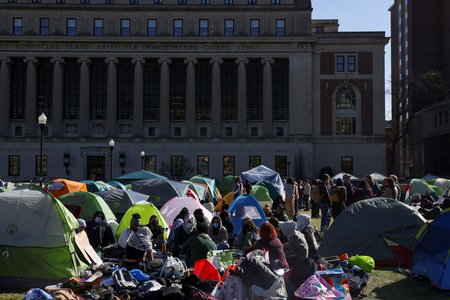
Clip: How protests against Israel and war in Gaza could hurt Biden in November

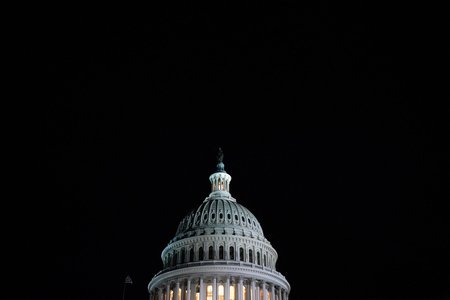
Full Episode: Washington Week with The Atlantic full episode, 4/26/24

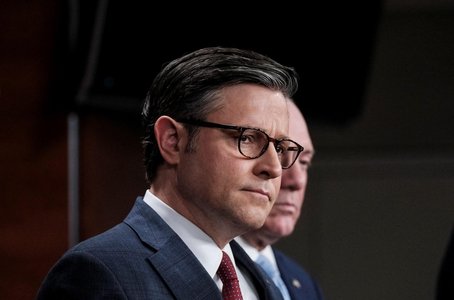
Clip: Johnson risks speakership to get Ukraine aid bill approved

Preview: Coming Up on Washington Week with The Atlantic

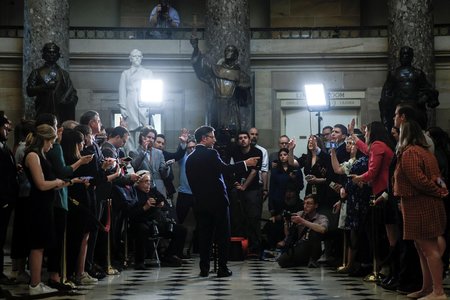
Full Episode: Washington Week with The Atlantic full episode, 4/19/24

© 1996 - 2024 WETA. All Rights Reserved.
PBS is a 501(c)(3) not-for-profit organization
